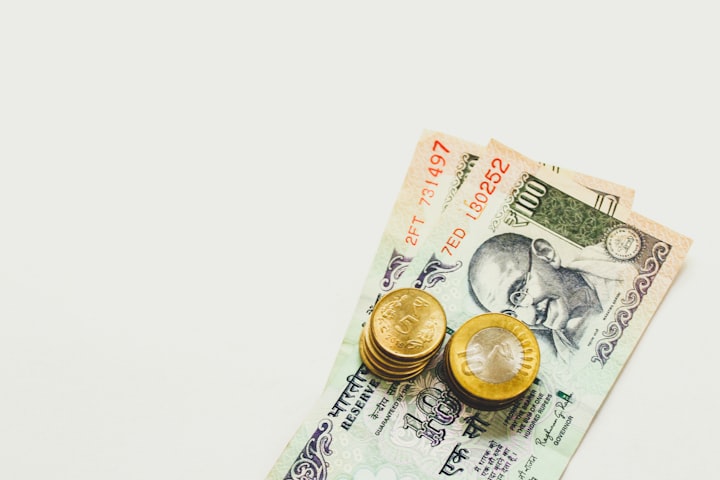10 Things To Look At Before Starting A Sip In Mutual Funds
Mutual funds are the center of attraction for many investors. But you have to look at many factors before starting with Mutual Funds

It's great to start early in investing and saving. But taking the right decisions in the right direction is important. In this article we will try to guide you to make a correct decision. It will set your expectations reasonably. Mutual funds are the center of attraction for many investors. So today we are covering the mutual funds. The small to-do list at the end of the article will be quite helpful to summaries all the points. Even if you have past experience in investing you can still read this article. It will curve out the errors you may be making while dedication for an investment.
#1. Past trends
It is important to see the past trend. You can check it on any website. CAGR of 1,5 and 10 years should be relevant. If there is a recent fall in return, you should study further. It may be the start of a downtrend. If it is due to some temporary reason, you can start your investment in a small amount. Even if it keeps falling for some time, you will end up in decent gains. But if it is the start of a downtrend, you need to be careful. Pause your investment. There may be a long term change in the entire scope of a sector. In that case, it's better to hold on to your cash. Wait for the right time to enter. Your timing is very important. But in the case of strong sectors, like Pharma and defense, you can start an investment without much stress. There are traditionally strong sectors. You can find a comparison sheet for the returns of various mutual funds. They may be from the same sector but the selection of stocks is also important. Keep an eye on their returns. Consistency is important. Funds fetching a good return for a long time can be selected to start investment.
#2. Type of fund
There are a variety of funds and schemes. You can select as per your requirement. We can divide them in following major heads-
- Equity-based funds
- Commodity based funds
- Debt funds
- Index funds
You can select any of them. But for risk control, it's better to select a variety of them. They have different return capabilities. On the same lines, their inherent risk is also different from each other. Equity-based funds have high returns but then the risk is also high. In the case of small-cap or mid-cap funds, returns may skyrocket. But then at the time of downfall, you may end up losing your capital. We have so many examples of that.
In the case of index funds, the return and risk both are adjusted. Some of the companies may be at a downfall. But some of them may be doing great. Here you can expect a decent return. The level of risk is also decent. Unless the entire economy is down, your capital is safe. At a good time you can get a good refund.
Debt funds have various debt instruments as their inherent investment. You can't expect too much return here. Here the benchmark will be a savings account and bank FD. You can select a debt fund if you are getting a return more than the bank FD. Your investments in these funds are comparatively safe. Most of the investment will be in the government of India and RBI’s debt instruments.
#3. Sector analysis
It is yet another important part. Every sector doesn't share the same fundamentals. The infra sector may be debt-ridden but the pharma sector is doing well. E.g. At the time of the pandemic, all other sectors are negative but pharma is still good. IT and telecom operators may see huge profits. On one side the sectors like Travelling and hospitality may be facing the challenge for their survival. Some new startups may be making a history of growth. It is very important to study the sectors with the current economic position. Investment in the wrong sector may fetch your losses. It is a game of timing. Correct entry is very important.
#4. Fund manager
The performance of the fund manager is another important factor. In case of wrong selection of stock, you may lose money even in a profit-making sector. Because some companies may still lose money due to their own personal issues. For example, if a company is scam-hit, it will fall in the market. Even if the entire sector is positive. Now if your fund manager selected that share and the ration in the portfolio is high. You may lose the money in spite of the correct sector. In the case of banks, if there is a huge amount of NPA, then a bank may fall into the stock market. Although all other banks may trade in positive. Your return in other banks may be set off by the loss of that one bank. It is very important to see the past performance of the fund manager. In the case of mutual funds, he is the person responsible for the selection of stocks.
#5. Time frame
You should have a clear idea of the time frame before you make your investment. Mutual funds investments are not for meeting urgent needs. They are for a long term perspective. So you should be aware of the time frame of the investment. In the case of early redemption, you may lose potential benefits. Apart from that, there are some exit loads in mutual funds. It will be an extra cost. You may lose the tax benefits also. In capital gains, there is a prescribed time limit to claim the benefit of long-term capital gain.
#6. Expected ROI
It will help in the selection of the correct fund. The expectation of the fund is important. Keep it reasonable. Funds offering magical ROI bears the high rate of risk also. You need to balance between greed and fear. Try to keep it safe. Pen down your requirements and then decide on the funds you want to invest in.
#7. Risk appetite
This is the base to decide your scheme. Can you hold the funds in case of an emergency? When you should increase the investment and when it is time to exit. You may also have to book the losses at the time of exit. If you have a lot of responsibilities in your personal life. Keep your risk-taking as low as possible. It may be life-threatening. Don't fall for the trap of fast-moving funds. They may come down at the same speed.
#8. Taxation
Taxation plays an important role in investment decisions. There are various schemes offering tax benefits. Let me sum up some of them here-
- ELSS: Investment in ELSS schemes offers you the benefit of tax on the amount of investment. It has the least lock-in period in comparison to all other investment options. There is a lock-in period of three years. Also, the capital gains at the time of redemption also get the tax benefit.
- Period of holding also has a bearing on taxation. In cases less than 36 months, the tax rate is high. As the investment will be treated as a short-term capital gain. Thus the requirement of funds shall e]be planned in such a way that you can keep your funds in mutual funds for the long term.
#9. Lock-in period
The lock-in period is there in tax savings funds. In other cases, there is an exit load if the funds are redeemed before the pre-fixed period. Thus read the term and conditions carefully. Only then put your money into a fund.
#10. Fund management charges
Every fund has some charges for the management of funds. Although there is a restriction on the maximum percentage of these charges. But still, they vary from fund to fund. Read the scheme details. Choose the fund with lesser charges. Every fund has two schemes. One with a brokerage, when you invest through some broker. Another way out is to invest directly. In the case of direct investment, there is no brokerage. It can save you the amount of brokerage from your earnings. But if you are quite busy and don't have time to do research, you can go for an agent. Who can handhold you on your investment journey? In other cases, you can do your own research. Invest directly via a mutual fund company and manage the funds yourself.
About the Creator
Shaifaly Girdharwal
CA Shaifaly Girdharwal is a qualified chartered accountant practicing in GST. She is the co-founder of consultease.com and a famous YouTuber with more than 2,40,000 subscribers for her channel dedicated to the GST videos.






Comments
There are no comments for this story
Be the first to respond and start the conversation.